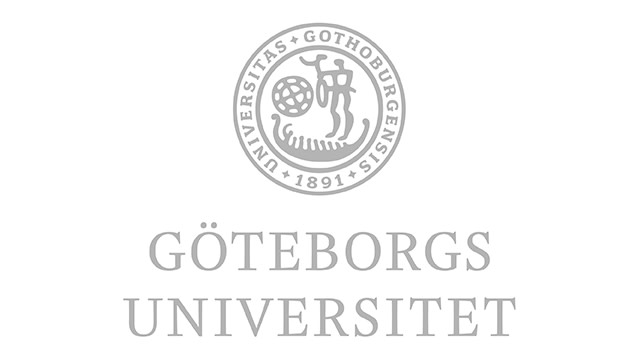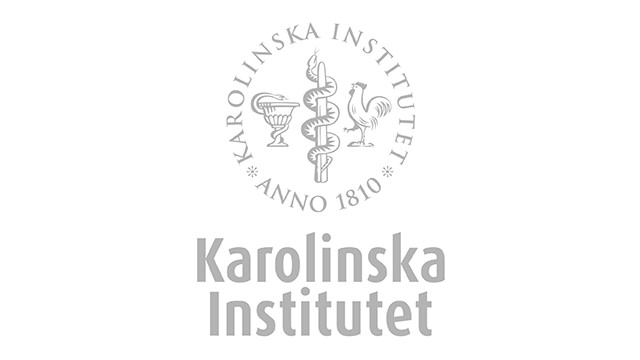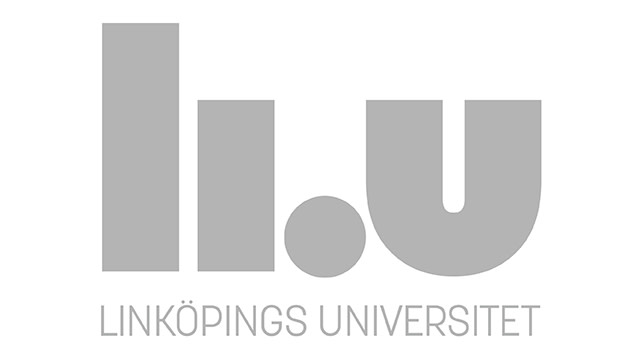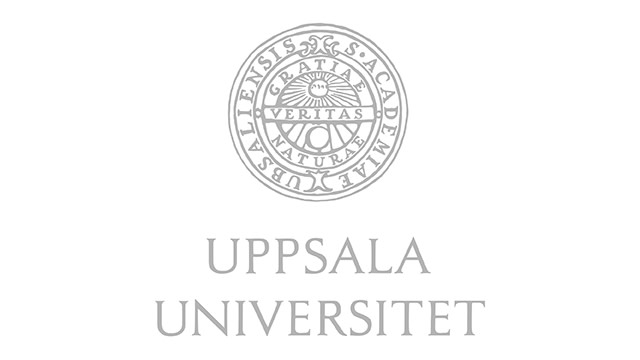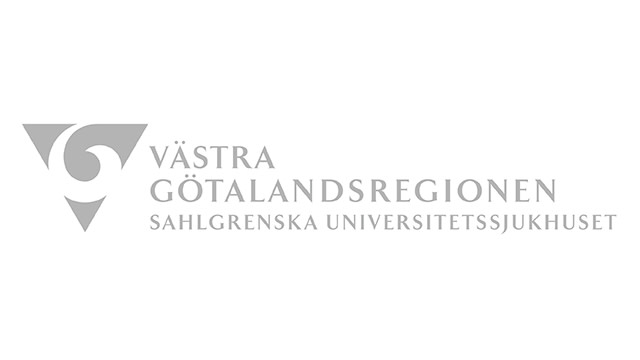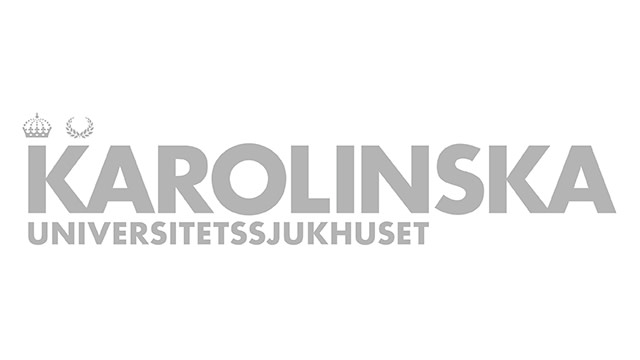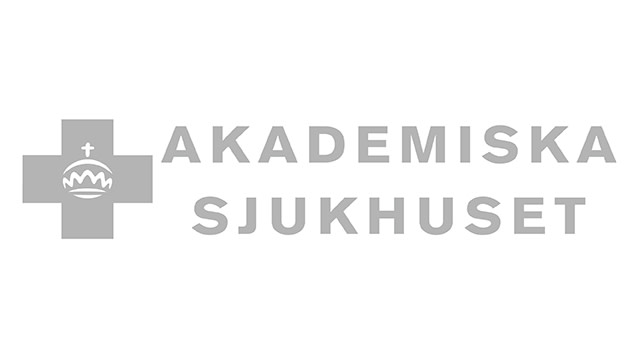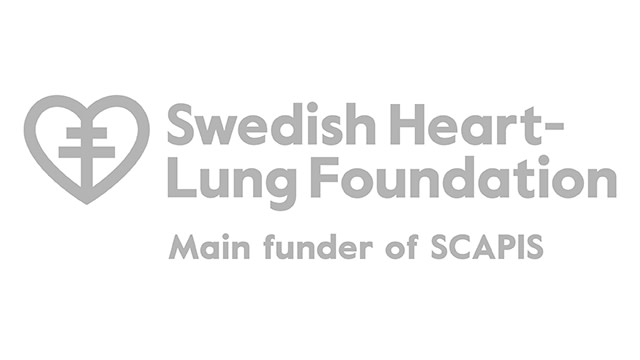The first public release of data was on March 17, 2021. All researchers based in Sweden, or international researchers in collaboration with a researcher based in Sweden, are welcome to apply for data. Applications are to be submitted electronically on the SCAPIS portal (accessed via this website).
The SCAPIS recruitment phase, when data, bioimages and biological samples were collected from 30 154 individuals, was completed in the end of 2018. SCAPIS aims to gradually release these data resources for use in research in a form that is comprehensive, of high quality and easy to use.
The following are required to access SCAPIS data:
Connection to a research institution in Sweden
To apply for data, you have to be connected to a research institution in Sweden such as a university or a regional health care authority.
The responsible researcher must have a PhD
The researcher responsible for the project must have a PhD, but the application itself can be
registered and filled in by someone who does not have a PhD. In the case of an
approved application, however, it is always the responsible researcher who
ultimately receives and is responsible for data provided by SCAPIS.Approval from the Swedish Ethical Review Board
An approval from the Swedish Ethical Review Board (Etikprövningsmyndigheten) for the research project is obligatory before an application for data from SCAPIS. Obtaining the
ethics approval is the responsibility of the individual researcher or research
group. Individual ethics approvals are also necessary for researchers with their “own” local data generated within the SCAPIS project (“local sub-studies”). You can find the templates on Etikprövningsmyndigheten’s website.Specific wordings for applications
There are specific wordings that are recommended for inclusion in ethical applications concerning SCAPIS data. We strongly recommend reviewing these.
When applying for ethical approval for a study on national SCAPIS data, the common
core template for informed consent can be used.For local substudies, locally adapted versions of informed consent to the specific center -
Göteborg, Malmö, Linköping, Stockholm, Umeå, Uppsala - may be more appropriate.Finally here is a link to informed consent for the pilot study.
With regard to ethical approval, the SCAPIS office will review the following:
that the population described in the ethics application matches the population in the application to SCAPIS
that the project’s Principal Investigator is involved in the ethics application
that the organization responsible for the project (”forskningshuvudman”) which applies for data from SCAPIS is specified in the ethical application
that requested data is relevant to the project based on the description in the ethics application and the description in the project application
It must be stated in the ethical application that data from SCAPIS will be used
If register data are requested, this must be adequately described
Guarantee no overlap with SCAPIS core publications
Within SCAPIS, there are specific scientific topics that are of strategic importance and provide significant value to the SCAPIS cohort. These topics are defined and prioritized as core publications, and they will be coordinated by the SCAPIS team. Applications with similar research questions will not be granted data access during a limited time period.
A list of the core publications is available here.Data access board
When an application for data access requires a more thorough discussion and a decision
from scientific experts, the application is referred to SCAPIS Data access board.
The scientific members of the board are currently the following members of the SCAPIS National Steering Committee:Professor Göran Bergström, Director, University of Gothenburg (PI Gothenburg)
Professor Carl Johan Östgren, vice Director, Linköping University (PI Linköping)
Professor Gunnar Engström, Lund University (PI Malmö/Lund)
Co-authorship
The SCAPIS study is a Swedish multicentre collaboration between six host universities and university hospitals, and considerable time and resources have been invested to enable the completion of the study including more than 30,000 participants. In order to appreciate this collaboration, all scientific publications using the full SCAPIS cohort have hitherto included authors from all six host universities. It is important to continue to acknowledge this unique national collaboration within SCAPIS as well as endorsing these universities in future studies, also after the launch of the SCAPIS database as an open research resource. Accordingly, all forthcoming scientific publications based on the SCAPIS national database should acknowledge this national collaboration and include authors from all six participating universities. The applicant is obliged to invite one co-author from each host university to take part in the study. The invited host university co-author has the right to renounce co-authorship and contact the local PI to suggest a replacement. The Vancouver guidelines for authorship must be followed.
Return of new variables to SCAPIS
Researchers will be asked to return any new variables created from SCAPIS data or other SCAPIS resources to the SCAPIS database in a predefined format.
How to apply
Written instructions on how to apply
Access fee
An administrative fee will be charged before data sharing. The fee to access data for research from SCAPIS helps cover the project's running costs. Access fees are reviewed regularly.
The fees are for applications filed before April 29 2025:
5 000 SEK + VAT per application for initiation of the application process. Please note that this initiation cost is mandatory for all applications even if the application is not approved.
An additional cost of 30 000 SEK + VAT for access to data including up to 250 variables. For access to data of more than 250 variables an extra cost of 100 SEK + VAT per variable applied for will be added. For access to a total of 950 or more variables, a maximum fee of 100 000 SEK + VAT is applied.
Access to register data provided directly by SCAPIS (in crude format, not derived variables) generates an additional cost of 10 000 SEK + VAT per selected register.
If a new linkage to an external register is requested, there is an additional cost of 12 500 SEK + VAT for one register. If linkage to more than one external register is requested, the cost will increase in proportion to the additional administrative efforts required. In addition, the other involved register holders will charge their fees.
Access to genotype data (genetics) generates an additional cost of 10 000 SEK + VAT up to 100 SNPs (single nucleotide polymorphisms). Extra SNPs, above 100, costs 100 SEK + VAT per SNP. For access to a total of 500 or more SNPs, a maximum fee of 50 000 SEK + VAT is applied.
Access to image data: The access fee for one application including one data typeis 45 000 SEK +VAT and for every additional data type 10 000 SEK +VAT will be added. The maximum fee will be 75 000 SEK +VAT. A maximum of 10 variables can be applied for in these applications.
The invoice will be sent from the SCAPIS Office after handling of the application and the case is closed.
The fees are for applications filed from April 29 2025:
6 000 SEK + VAT per application for initiation of the application process. Please note that this initiation cost is mandatory for all applications even if the application is not approved.
An additional cost of 45 000 SEK + VAT for access to data including up to 250 variables. For access to data of more than 250 variables an extra cost of 150 SEK + VAT per variable applied for will be added. For access to a total of 950 or more variables, a maximum fee of 150 000 SEK + VAT is applied.
Access to register data provided directly by SCAPIS (in crude format, not derived variables) generates an additional cost of 10 000 SEK + VAT per selected register.
If a new linkage to an external register is requested, there is an additional cost of 18 000 SEK + VAT for one register. If linkage to more than one external register is requested, the cost will increase in proportion to the additional administrative efforts required. In addition, the other involved register holders will charge their fees.
Access to genotype data (genetics) generates an additional cost of 12 500 SEK + VAT up to 100 SNPs (single nucleotide polymorphisms). Extra SNPs, above 100, costs 150 SEK + VAT per SNP. For access to a total of 500 or more SNPs, a maximum fee of 75 000 SEK + VAT is applied.
Access to image data: The access fee for one application including one data typeis 45 000 SEK +VAT and for every additional data type 10 000 SEK +VAT will be added. The maximum fee will be 75 000 SEK +VAT. A maximum of 10 variables can be applied for in these applications.
The invoice will be sent from the SCAPIS Office after handling of the application and the case is closed.
Conditions for using SCAPIS data
SCAPIS is a collaborative project and a result of the hard work of many people and the
generous contributions of the study participants. To make best possible use of the data, the following conditions apply.Populations and data that is available
The SCAPIS study included a total of 30,154 individuals at 6 different sites (Göteborg 6,265 participants, Linköping 5,057, Malmö 6,251, Stockholm 5,039, Umeå 2,506, Uppsala 5,036). Of the 30,154 individuals, 14,646 were men and 15,508 women. The SCAPIS pilot study of 1,111 individuals was conducted in Gothenburg in 2012 to test the feasibility of the SCAPIS study examinations. There is no overlap between the participants of the SCAPIS pilot and core cohorts. In addition, the recruitment for the SCAPIS pilot cohort was from high and low socio-economic status areas as opposed to randomized, population-based recruitment for the core cohort, making the SCAPIS pilot cohort suitable as validation cohort. When applying, either the entire SCAPIS cohort can be selected or a selection based on one or more specific site/s. The pilot cohort can also be selected as a selection.
Data presently available is presented under the section "Data open for access". In the SCAPIS portal you can see the complete selection of all variables that are currently available. Available data comes mainly from the SCAPIS study's core surveys, i.e. surveys conducted on all sites. However, there is also some data from local sub-studies within SCAPIS that have been performed on some or all of the cohort participants at a particular site. Data from local sub-studies will be released gradually over time.
Please note that data applied for must not be used for prospective follow up analyses.
From application to data delivery
All information you need after having submitted your application can be found here.
In the SCAPIS portal you will see the complete selection of all variables currently available.
Available data originates mainly from the SCAPIS core examinations (all sites). There is also some data from local substudies within SCAPIS - local researchers that have performed an extra investigation on some or all of the cohort participants at a particular site. Data from local substudies will be released gradually over time.Examination results
More than 1000 data points (variables) are open for access, covering areas such as:
Anthropometry (height, weight, waist, hip)
General biochemistry data (Hb, triglycerides, HDL-, LDL- and total cholesterol, glucose, HbA1c, creatinine and hsCRP)
Extended biochemistry data as biomarkers of cardiovascular disease (ApoA1, ApoB, Lp(A), NT-proBNP), inflammation (α1-antitrypsin), liver disease (ALAT, ASAT, GGT) diabetes (insulin) and kidney function (cystatin C)
Blood pressure
Lung function (spirometry and DLCO)
Accelerometry
Core questionnaire (lifestyle&health)
Diet questionnaire
CT Chest and CT Cardiac (data from structured radiologist judgement of CT images of the lung and heart)
Carotid ultrasound (presence of plaque)
Metabolomic and proteomic data (n=5000 from main study and n=1100 from pilot)
Register data
Register data can be accessed in three ways.
Please note: To access register data, specific and mandatory requirements apply regarding the ethics application. Carefully review the specific wordings for ethics applications provided on this website (See “Accessing SCAPIS data - Approval from the Swedish Ethical Review Board”).
1. Unprocessed register data provided directly by SCAPIS, annual data until 2018
The Swedish Prescribed Drug Register (Läkemedelsregistret)
The National Patient Register, Inpatients (Patientregistret slutenvård)
The National Patient Register, Outpatients (Patientregistret öppenvård)
The Swedish Medical Birth Register (Medicinska födelseregistret)
2. Tabular register-derived data provided directly by SCAPIS
Data currently open for access can be viewed in SCAPIS Portal under the categories “Register-derived data…”.To avoid underpowered studies using register-derived data, it is strongly recommended to consult expertise in statistics before conducting analyses.
Tabular register-derived data based on registers from Socialstyrelsen
Register-derived data for different key diagnoses, based on a combination of the National Patient Register, Cause of Death Register or other registers mentioned below will over time be made available for SCAPIS applications.Use of register-derived data including register from Socialstyrelsen is regulated by the research scope described in the two SCAPIS ethics applications “Uppföljning av hjärt-kärlsjukdom och diabetes med registerdata i SCAPIS, Dnr 2023-06241-01” and “Uppföljning av SCAPIS med nationella registerdata avseende lungor, luftvägar och lungfunktion, Dnr 2023-06033-01”. Research applications outside the scope of these two ethics applications will not be granted access to data. All applications still need to file their own ethics application describing their specific project, with references to one of the SCAPIS ethics applications mentioned above, as described in the specific wording template provided on this website (See “Accessing SCAPIS data - Approval from the Swedish Ethical Review Board”). In summary, each application for register-derived data must be supported by both one of the SCAPIS ethical approvals as well as a project-specific ethical approval.
It is important that the provided register-derived data will be used exclusively for the project presented in your current application, and not for any other project(s).
Variables open for access from April 29 2025:
CHD (Coronary Heart Disease)
Non-fatal myocardial infarction (I21-I22 “in first position”)
Fatal coronary heart disease (I20-I25 as “underlying cause of death” (ULORSAK)
ASCVD, SCAPIS version of ASCVD (AtheroSclerotic CardioVascular Disease)
Non-fatal myocardial infarction (I21-I22 in first position)
Non-fatal ischemic stroke (I63 in first position)
Fatal coronary heart disease (I20-I25, "underlying cause of death", ULORSAK).
Fatal ischemic stroke (I63, “underlying cause of death”, ULORSAK)
CHD-intervention, CHD including coronary procedures
Non-fatal myocardial infarction (I21-I22 “in first position”)
Fatal coronary heart disease (I20-I25 as “underlying cause of death” (ULORSAK)
Revascularization (PCI/CABG, FNA-FNG)
The following diagnoses will also be added:
Diabetes (NDR)
Pulmonary cancer
Pulmonary embolism
Stroke (in first position)
Stroke (in any position)
Ischemic stroke
Hemorrhagic stroke
Atrial fibrillation (first position)
Atrial fibrillation (in any position)
Statin treatment (2 prescriptions / per 6 months)
Tabular register-derived data based on other registers
Currently not available. See the list below for upcoming releases.
Upcoming releases of register-derived data
Register-derived data will continuously be added to the database (no schedule is currently available)Prescribed Drug Register (Socialstyrelsen)
Medical Birth Register (Socialstyrelsen) (enbart data om längd och vikt)
Värnpliktsregistret (Pliktverket) (enbart data om längd och vikt)
SWEDEHEART
Nationella diabetesregistret (NDR) (Region Västra Götalandsregionen)
Cancerregistret (Socialstyrelsen)
SmiNet (Folkhälsomyndigheten)
Luftvägsregistret (Norrbottens Läns Landsting)
Lungfibrosregistret (Karolinska universitetssjukhuset)
If you have suggestions for retrieval of other diagnostic codes or data from these registers, please contact scapis@scapis.org
3. New linkages to external registers
You can apply for linkage of SCAPIS data to other external registers. The possibility of implementing a requested register linkage will be considered on a case- by case basis. There may be formal or technical obstacles that result in a request being rejected.Some register holders have long queues. We recommend that you do not submit your application to SCAPIS if the expected waiting time of the register holder is more than three months. You may then have to submit a new application, and the application fee may increase.
Genetics data
The genotyping effort of SCAPIS has been completed at the SNP&SEQ Technology Platform in Uppsala, after DNA extraction from whole blood at Karolinska Institutet Biobank. The genotyping data holds very high quality and has been imputed using the HRC panel. If you wish to apply for genetic data, make sure to make it clear in your ethical applications that genetic analyses are planned. With this data, new avenues for research is opened up in SCAPIS, such as genome-wide association studies, genetic risk score analyses and Mendelian Randomization studies.
The available SNPs are listed in the files below. Around 700 000 SNPs for the directly genotyped data and 40 million for the imputed genotype data (around 10 to 15 million per file).
SCAPIS directly genotyped SNP list (zipped CSV, 6 MB)
SCAPIS imputed SNP list, Chromosomes 1-5 (zipped CSV, 156 MB)
SCAPIS imputed SNP list, Chromosomes 6-12 (zipped CSV, 153 MB)
SCAPIS imputed SNP list, Chromosomes 13-22 and X (zipped CSV, 121 MB)
In the application form, on page 6D, you can also search for available SNPs. See the application guidance for details.
Biological samples
Core biological samples
To access SCAPIS biological samples, the following criteria must be fulfilled:
Analyses need to be performed on the whole cohort of 30 000 participants
Results from the analyses must be returned to the data base to enrich SCAPIS data
The ethical application must include text that makes it possible to share results via SCAPIS data service (see Specific wordings for applications)
The suggested project must create a clear added value and be in line with the goals of SCAPIS
Before approval to the ethics committee a preliminary inquiry for access is sent to scapis@scapis.org and must contain:
Information about scientific questions to be answered
Planned analyses
Sample type(s) and volume needed
Plan for financing the project. Note that the financing must cover costs for withdrawal of samples at six biobanks, sample transports and costs for analyses
The SCAPIS biobank advisory bord makes all decisions on access to SCAPIS biological samples.
After acceptance by the SCAPIS biobank advisory board and approval by the ethical committee have been secured, the PI can apply for access to data from SCAPIS and access to samples from the relevant biobanks. Instructions will be supplied by the SCAPIS office.
Local biological samples
In addition to the SCAPIS core biobank sample collection, local biobank sample collections from the baseline examination are available at the Gothenburg (both a local biobank sample collection and a collection from the SCAPIS Pilot study), Malmö, Stockholm, and Linköping sites. Samples taken around 1 year after baseline are available at the Malmö and Linköping sites. For more information on each respective biobank sample collection and who to contact regarding access, see below:
Gothenburg (local sample collection and the SCAPIS Pilot study sample collection).
For information on access, please contact sample collection PI Göran Bergström (goran.bergstrom@hjl.gu.se)
Malmö (local sample collection and a collection sampled 1 year after the SCAPIS baseline examination)
For information on access, please contact sample collection PI Gunnar Engström (gunnar.engstrom@med.lu.se)
Stockholm (local sample collection)
For information on access, please contact sample collection PI Tomas Jernberg (tomas.jernberg@ki.se)
Linköping (local sample collection and a collection sampled 1 year after the SCAPIS baseline examination)
For information on access, please contact sample collection PI Carl Johan Östgren
(carl.johan.ostgren@liu.se)
Image data
SCAPIS offers no exclusivity to data meaning that more than one researcher can apply for the same data having the same research question. However, cooperation between groups with similar projects is encouraged.
The PI shall be prepared to make newly generated variables from the project available via the SCAPIS Portal in tabular format. SCAPIS will need a description of the generated data after completion of the analysis. Once imported into the SCAPIS Portal, the new data will be available for other researchers to apply for in accordance with ordinary SCAPIS procedures. Important to note, newly generated variables will be tagged with the name of the researcher who generated them. You will always be informed if another researcher applies for access to your data and can evaluate if a collaboration can be formed. Generally, we expect you to welcome collaboration. During the first 24 months you can say no to any collaboration if it interferes with your own research plans.
SCAPIS also encourages the PI to share other outcome data, such as image annotation / segmentation, however, currently, SCAPIS has no capability to help sharing this additional information. Therefore, sharing has to be organized by each individual research group.Image data provided may only be used for method development within the area of image analyses and for the publication of 4-5 research reports with presented sample sizes of up to 1000 individuals. Note the sample size limitation applies even if access to a more comprehensive image data set (data from up to 30,000 individuals) has been granted. Researchers who wish to publish additional reports based on the same dataset must submit a new application via scapis.org. An administration fee of SEK 5000 will be charged.
Note that the image data is accessed* via AIDA (https://liu.se/forskning/aida). When the application is approved by SCAPIS the researcher will get instructions on how to access the image data at AIDA.
Note – the image dataset available for wider use is at this point the first version of pseudonymized image data released from SCAPIS. The dataset as a whole may therefore require completion or fine tuning. Input from active researchers is welcome. We therefore encouraged researchers to critically scrutinize data and report errors or potential limitations. Please report to scapis@scapis.org
The image data and corresponding variables are shared with a specific ID, called Valla-ID.
The access fee for one application including one data type is 45 000 SEK +VAT and for every additional data type 10 000 SEK +VAT will be added. The maximum fee will be 75 000 SEK +VAT. A maximum of 10 variables can be applied for in these applications.
For more information or questions related to the procedures please contact scapis@scapis.org.
* In exceptional cases the image data may be delivered on a storage media (disk). In this event the disk must be purchased by the researcher. The researcher may either physically collect the disk with the data in Gothenburg or arrange for a transport company to handle transportation of the disk, at their own risk. If data is corrupted in transit, there is no guarantee that a new copy can be produced promptly.
Access to variables derived from image analysis
Access to variables derived from image analysis is restricted. For researchers wanting to gain access to these variables, approval from the responsible researcher will be required. Therefore, it is recommended that the responsible researcher is contacted in advance of sending in the application for data. SCAPIS assumes that the responsible researcher is willing to share data but may under specific circumstances restrict access to data for certain time periods. The responsible researcher will also have the opportunity to be included as a co-author.
Body CT composition variables
Variables open for access from April 29 2025:
Abdomen, subcutaneous adipose tissue attenuation - Median value
Abdomen, subcutaneous adipose tissue attenuation - Mean value
Abdomen, visceral adipose tissue area
Abdomen, visceral adipose tissue attenuation - Median value
Abdomen, visceral adipose tissue attenuation - Mean value
Liver, area of the segmented liver region.
Liver attenuation - Median value in the segmented region
Liver attenuation - Mean value in the segmented region
Liver attenuation - Robust mean value after filtering out pixel intensity outliers
Thigh intermuscluar adipose tissue area (sum of both thighs)
Thigh intermuscluar adipose tissue attenuation - Median value (data from both thighs)
Thigh intermuscluar adipose tissue attenuation - Mean value (data from both thighs)
Thigh muscle area (sum of both thighs)
Thigh muscle attenuation - Median value (data from both thighs)
Thigh muscle attenuation - Mean value (data from both thighs)
Thigh muscle attenuation - Robust mean value after filtering out pixel intensity outliers
Thigh subcutaneous adipose tissue area (sum of both thighs)
Thigh subcutaneous adipose tissue attenuation - Median value (data from both thighs)
Thigh subcutaneous adipose tissue attenuation - Mean value (data from both thighs)
Data from local sub-studies & the pilot study
At present, it is possible to apply for access to data in the following local substudies.
All sites
AS01 - Environmental exposure (air pollution, noise, green areas&water). Yearly data for 2000-2018.Göteborg
LS01 - Submaximal aerobic fitness test
LS03 - Trail Making Test
LS02 - Uric acid
LS04 - Blood metals
Malmö
LS06 - Pulse wave analysis in the arteries
LS07 - Orthostatic blood pressure
LS08 - Advanced glycated endproducts
LS09 - Satisfaction with life scale
LS10 - Life Orientation Test – Revised
LS11 - Short Dental Questionnaire
LS22 - Blood cell count
LS23 - Uric acid
LS43 - Blood metals
Stockholm
LS27 - Survey on women´s health
Linköping
LS12 - Survey on women´s health
LS69 - Cognitive DysfunctionUppsala
LS15 - Pets and cardiovascular risk
LS59 - Organizational justice, self rated fitness and sleep
LS71 - Perception of CVD riskUmeå
LS50 - Cognitive Dysfunction
LS57 - Uric acidThere are some restrictions on access to data in the SCAPIS database from local sub-studies. To gain access to data variables that belong to a local sub-study, approval of the sub-study responsible researcher is required. Data belonging to local sub-studies are marked in the Portal. Review of which data variables that are available and are interesting for your project is recommended already in the application planning stage. If any of the variables belong to a local sub-study, it is recommended that the responsible sub-study researcher is contacted in advance. For the SCAPIS pilot study, the same procedure applies. The responsible researcher is the PI for SCAPIS Gothenburg.
When applying for SCAPIS data
It is very important that you carefully read and follow the instructions and recommendations the SCAPIS project have presented on how to write the ethics application when applying for SCAPIS data. It can specifically be noted that to access register data, specific and mandatory requirements apply regarding the ethics application. All information you need to write the ethical application is available at scapis.org and can also be found here.
Identities and selection of population in obtained data
All data released from SCAPIS is disclosed in a pseudonymous form where each SCAPIS participant is represented by an ID unique to each data set. Population selection is possible based on study site, sex and smoking status. If you can send in a list with a predefined population (e.g. participants in a particular local sub study) it is possible to use this for selection as well. SCAPIS cannot offer selection of population based on other criteria or matching of SCAPIS participants to other populations. If we are able to offer this service, it will be announced in our newsletter and at scapis.org.
Errata list
The SCAPIS data collection is worked upon to achieve the highest possible accuracy. Following reports of inaccuracy or as the result of internal quality assessment, certain variables have been updated with slight changes to improve the accuracy and quality. A summary of the changes made after the launch of SCAPIS Dataservice in March 2021 (an errata list) can be found here.
Data sets which include variables that have been updated (i.e. can be found on the errata list), can be updated at a cost of 6000 SEK. Please note that only variables found on the errata list will be considered for an update.
If an update of variables is applied for at the same time as new variables for the dataset, it is the responsibility of the researcher to inform SCAPIS of the presence of variables to be updated at the time of application.
Recruitment Studies
After closure of SCAPIS 2 it will be possible to access participant data aiming at contacting and recruiting individuals for surveys, sampling, examinations, etc., the following applies:
Requirements:
In line with SCAPIS overarching research questions
Mandatory co-authorship from contributing sites
No radiation
No intervention
The invitation letter must be approved by SCAPIS
Return of relevant data in a predefined format to enrich the SCAPIS database
Other Conditions:
Applications are reviewed twice a year by SCAPIS Data access board (June 1 and December 1)
First review on June 1, 2026
Limitation on how often the same participants can be called is set to a maximum of 1-2 times/year depending on the scope and decided by SCAPIS Data access board
If you want to be updated on new releases of data - apply for our Newsletter (see link at the end of the start page)

